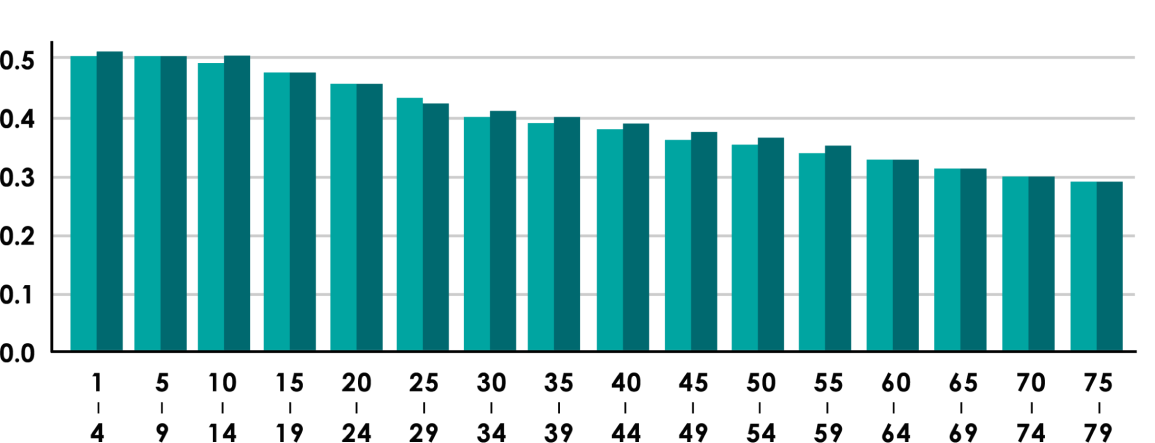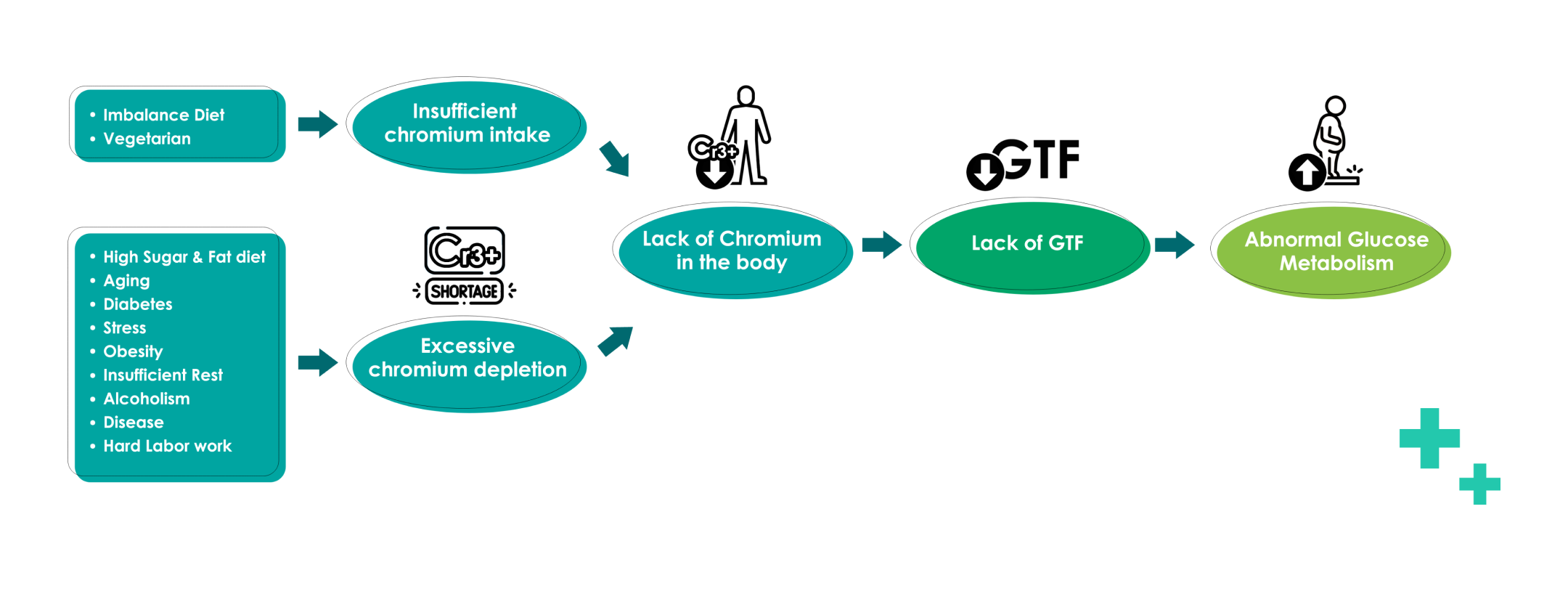What is 
• Obesity
• Arterial disease
– Local: Heart disease or stroke
– Systemic: Type Il diabetes
• Hypertension
• Fatty liver
• Cancer
• Dementia (Alzheimer’s disease; also known as type 3 diabetes).

The Influence of Insulin Resistance in Fat Cells and Blood Sugar

Unraveling the Significance of GTF in Diabetes Management:
The Legacy of Walter Mertz
The late Walter Mertz, a renowned research scientist specializing in trace elements in human nutrition and a Science Hall of Fame inductee at the USDA, is celebrated for his groundbreaking discovery regarding chromium’s essential role in carbohydrate metabolism. Mertz’s profound insight led him to assert that Type II Diabetes is not a disease. It is the lack of a natural ingredient known as Glucose Tolerance Factor (GTF).
- An Insulin receptor coenzyme. Acts as a physiological enhancer of insulin activity.
- A compound composed of trivalent chromium, vitamins, amino acids, etc.
- Works with insulin to send blood sugar to every cell in the body.
- Binding to insulin and potentiating its action about 2 to 3-fold.
- Maintains the normal metabolism of carbohydrates in the body tissue cells.
Aging causes insufficient GTF in the body
From 0.5 ng/ml in early childhood to 0.3 ng/ml over 70 years old, other tissues such as hair and sweat have the same downward trend.


Other causes of insufficient GTF in the body


Can we get enough  from our diet?
from our diet?
- Chromium in grains, beans, and vegetables (broccoli) will combine with phytate (phytic acid) or dietary fiber, making chromium not easily absorbed.
- The soil is over-cultivated repeatedly, the fertilizer does not replenish enough trace elements / minerals, and the crops grown are also deficient in trace elements / minerals.
- Animal liver and human colostrum are good sources of chromium intake, but the liver has high cholesterol content and there are doubts about antibiotic residues.
- At present, the recommended daily intake of chromium has not yet been established in the world, but US ESADDI suggested 50 to 200 micrograms (mcg) in 1989.
- According to a survey conducted by Anderson et al. in 1992, in average a person’s daily diet contains only 15 micrograms of chromium per 1000 calories, so each person can only obtain an average of 20 to 40 micrograms of chromium per day, which is obviously insufficient for the recommended intake.
Elevate Your Health
Try GLUDYNA now!
Your daily diet of GTF (Glucose Tolerance Factor) offers far below the recommended intake, relying solely on your diet won’t provide the GTF necessary for healthy glucose metabolism. Try GLUDYNA, our groundbreaking solution designed to fill this nutritional gap and boost your GTF levels for optimal health. Say farewell to dietary limitations and welcome a healthier future with GLUDYNA!
